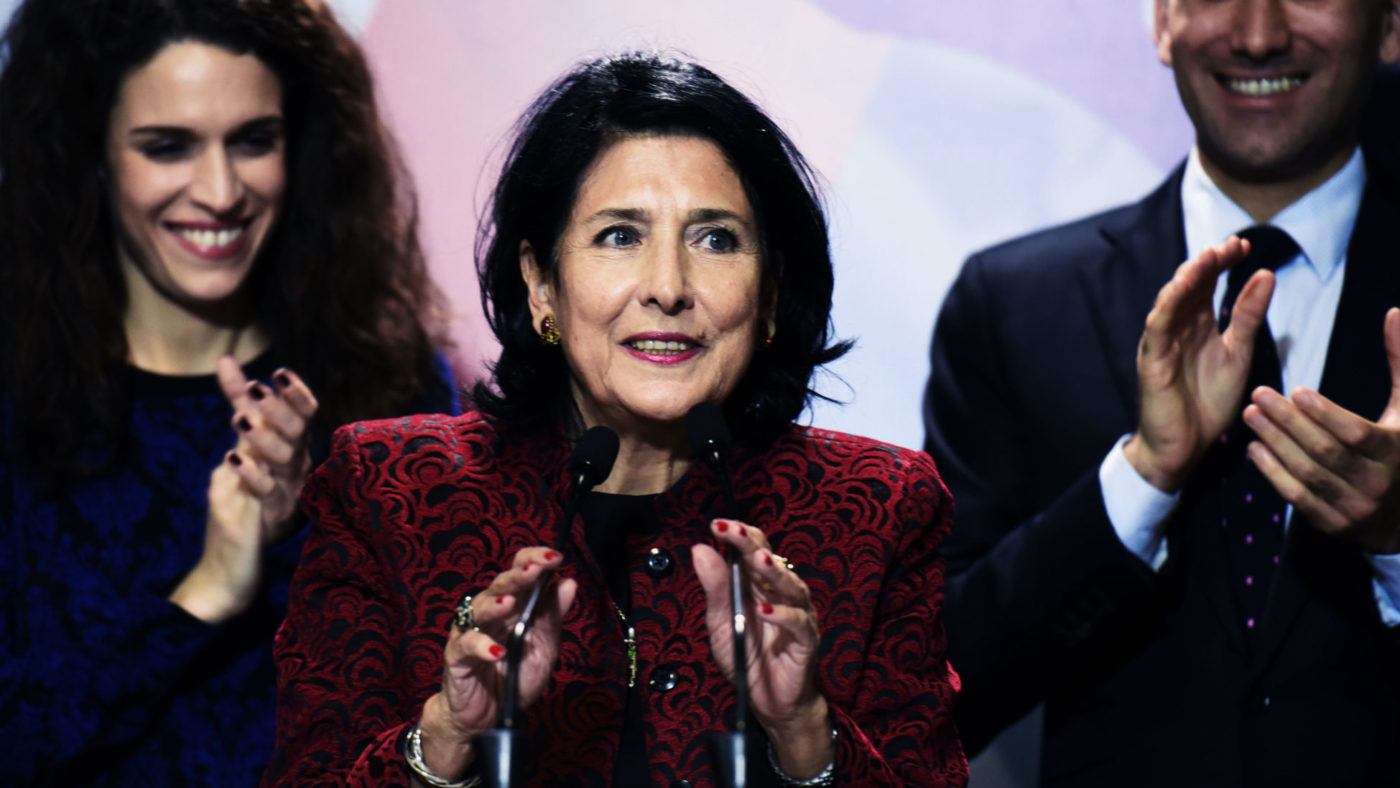Last week, Georgia held its second round of presidential elections and elected its first female president, the French-born ex-diplomat Salome Zurabishvili.
Zurabishvili was born in Paris after her parents fled Georgia in 1921 following its annexation by Soviet forces. She took up a career in the French foreign service and was posted to the Georgian capital, Tbilisi, as ambassador in 2003. She later gave up her post and then president Mikheil Saakashvili appointed her foreign minister.
Officially an independent, she was backed by the ruling Georgian Dream party and its founder and leader Bidzina Ivanishvili, the country’s richest man and a former prime minister (who named his party after a rap song by his son Bera).
In the first round of voting a month ago, Zurabishvili finished second with 37 per cent of the vote, one point behind Grigol Vashadze, who she defeated in the runoff last Wednesday. Vashadze was the candidate of the United National Movement, a party founded by Saakashvili, who is currently living in exile in the Netherlands.
The race became, on some level, a grudge match between the two heavyweight party founders, Ivanishvili and Saakashvili. Indeed, as Zurabishvili’s support foundered in the weeks between the first and second round, it was Ivanishvili who took centre stage in a blitz of negative advertising. As well as promoting their own leader, Georgian Dream also produced a poster with Saakashvili’s face on that read “No to the Nazis!”
The negative campaigning, which the OECD said undermined the election process, was just another low point in what has been an especially bruising election. The campaign has been dogged by controversy and dirty tricks, fuelled by the release of a series of audiotapes implicating politicians and officials in corruption. There were even claims that Saakashvili had personally authorised the killing of Georgian billionaire and failed presidential candidate Badri Patarkatsishvili, who was found dead at his Surrey home in 2008.
For all that, the run-off vote was decisive, with Zurabishvili receiving 59 per cent of the vote and Vashadze around 40 per cent, with turnout at 56 per cent — up nine per cent on the first round. Zurabishvili’s victory was no great surprise, given her sizeable campaign budget, which was three times Vashadze’s. He has rejected the result and called for protests.
This was the last time Georgians will directly-elect their president as constitutional changes mean that in the future the president will be chosen by a 300-strong college of electors, consisting of MPs and regional government representatives.
There was a lot at stake in this election for both Georgia and the wider Caucasian region. Anti-Russian sentiment has grown ever since the war a decade ago which deprived the country of a fifth of its territory. Russia, one of the few countries to recognise the independence of the breakaway regions of Abkhazia and South Ossetia, still maintains a military presence there, in violation of the ceasefire agreement.
While both candidates espoused a pro-European foreign policy looking to deepen ties with Western structures such as NATO and the European Union, Zurabashvili courted controversy by claiming that Georgia started the war with Russia. She has also emphasised the need to balance relations with Russia and the West.
The current Georgian government has consistently expressed its anger and concern about Russia’s strong support for regimes in Abkhazia and South Ossetia, while Georgian Dream has sought to tone down its rhetoric and has refused to be drawn into violent conflict again.
For Russia, even though Zurabishvili’s victory most likely means a continuation of Tbilisi’s policy of diplomatic opposition to Russia, it would also continue the ongoing efforts to de-escalate tensions between the two countries while avoiding sabre rattling — meaning much less of a problem for Moscow.
A victory for Vashadze, on the other hand, might have exacerbated tensions and could have provided a larger platform for Saakashvili’s consistent anti-Putin rhetoric, resulting in much colder relations with Russia.
Earlier this year, Georgia celebrated the 100th anniversary of its independence. In 1991, following the collapse of the Soviet Union, Georgia regained its independence. It adopted many of the trappings of the first republic: its crimson flag, its national holiday on 26 May and even the constitution which was adopted in 1921.
Today, Georgia holds regular and pluralistic elections and its democratic trajectory has generally shown significant improvement in recent years. It aims to become a full member of both the European Union and NATO and has carried out a series of reforms to show that is suited to join those elite international clubs.
Yet Russia remains a big obstacle standing in the way of the country’s ambitions. The Kremlin knows that all it has to do to prevent a country from ever joining NATO is to invade and then partially occupy it.
After Moscow’s illegal annexation of Crimea and ongoing use of military force in Donbas, many look at Russia’s troops in South Ossetia and Abkhazia with increasing concern and Tbilisi has recently accused Moscow of building up its forces, most recently in August.
The risk of the conflict between Russia and Georgia reigniting remains low, especially after Zurabishvili’s victory. Russia holds all the cards and Putin has proven time and again he is not averse to meddling in neighbours’ politics if they are not going in the direction he favours — nonetheless, given Zurabishvili’s public statements about relations with Moscow, any escalation seems unlikely for now.


